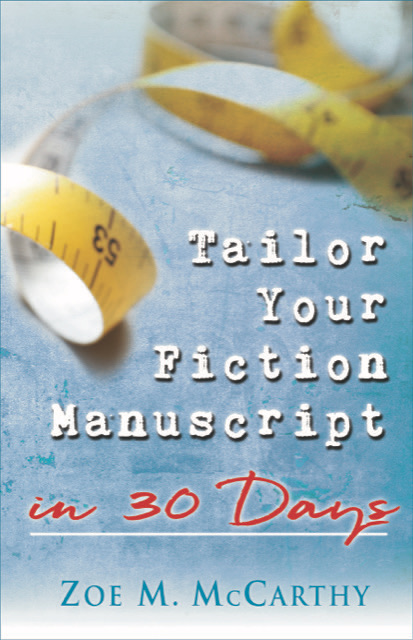

Tailor Your Fiction Manuscript in 30 Days is designed to shape a not-yet submitted, rejected, or self-published manuscript with low ratings into a book that shines. The method can also be a guiding resource for writers starting a manuscript. See details below.
For four weeks, I’ve been on a writing sabbatical at our lake cabin. I’ve made significant progress on a romance and my first speculative novel.
Every night, I email my sister my progress, negatives, positives, and what I’ve researched.

Here’s my sabbatical summary and tips.
Normal World
Responsibilities keep us from writing. Some of mine:
- Prepare and teach Bible Study (9 hours weekly)
- Half-day meetings (9 hours monthly)
- ACFW VA Treasurer Responsibilities
- Interruptions: telephone calls, etc.
- My blog post (5 hours weekly)
- Church tasks and social functions (I don’t work on Sundays.)
- Marketing Tasks (huge consumer)
- Preparation, travel, and teaching webinars and workshops (approx. one every other month)
- Short-stay visitors (fun)
- Housework (moderate—husband does most)
Preparation

- Chose July when the Bible study and two half-day meetings break for the summer.
- Enlisted 3 guests for my blog and set up posts ahead.
- Completed 3 ACFW VA Treasurer projects ahead.
- Created Sabbatical daily schedule.
- Set goals.
- Packed printer, ink, writing resources, etc.
- Packed comfortable clothes.
- Shopped for soups, frozen dinners, fruit.
- Set up a desk in the cabin loft.
Sabbatical
Workdays: Goal 25; Actual 21
Average Daily Word Count:
Goal Speculative 2,500; Actual 1,000
Goal Romance 2,500; Actual 1,300
Goal Total Words 125,000; Actual 48,000
Sample of Negatives:

- Hadn’t considered research time in word-count goals. Speculative needed heavy research.
- Scheduled inadequate time for the small weekly tasks I brought with me. So, rose earlier and shaved my 9-hour writing time.
- Hadn’t realized ACFW VA board would prepare for our conference and contest during July.
- Returned home to teach a pre-scheduled workshop. Unexpected technical difficulties drained time on two prior workdays.
- Several unexpected marketing tasks required attention.
- John’s weekend responsibilities prevented Sunday visits. Worked longer hours to make up for workday visits.
- Car broke down. Hours spent rectifying that.
- Made unexpected excursions for TVA approval of our new dock.
Sample of Positives:


- Read three books. One was a speculative and highlighted issues to consider for my speculative.
- Didn’t edit. I only performed fixes and rewrites necessary to move forward.
- Time to print thirteen maps proved invaluable for progress on my speculative.
- Research lessened word count, but prevented unworkable situations needing rewrites later.
- Working on two different genres worked well; nine hours on one book would have been grueling.
- In solitude, I had time to think.
- A blog post I read during a break gave me a great idea for a scene.
- Completed solid drafts covering a third of the speculative and seventy percent of the romance. And most research tasks are done.
- Accomplished more than I would have at home.
Would I Do It Again?

Alexas_Fotos
I thought I’d be protected from time-eating demands. They were partly my fault. But I’m wiser now. I look forward to my next sabbatical.
Tips
- Look ahead carefully for potential sabbatical crashers.
- Schedule sabbatical during a time where your responsibilities are lowest.
- Unless your sabbatical is a nanowrimo, consider the level of research needed and set word-count goals accordingly.
- It may be better to do research than major rewrites later.
- For long sabbaticals, schedule days off.
- If family will visit, maximize visits on your planned days off.
- Where possible, complete ahead or remove responsibilities from sabbatical days.
- Notify necessary people you’ll be unavailable.
- Don’t schedule a quick non-writing project. Too risky for a potential time eater.
- Create a writing space where resources are quickly available.
- Keep your needs simple: easy meals, minimal clean up, and few laundry loads.
- Take breaks and time to unwind during evenings.
- Keep a brief daily journal. Recording progress, negatives, and positives will facilitate planning future sabbaticals.
- Roll with the unpreventable disasters.
What goals would you choose for a sabbatical?

Zoe McCarthy’s book, Tailor Your Fiction Manuscript in 30 Days, is a fresh and innovative refocusing of your novel or novella. Through a few simple—and fun—steps, Zoe helps writers take their not-ready-for-publication and/or rejected manuscripts to a spit-polish finish. Writing is hard work, yes, but it doesn’t have to be difficult. —Eva Marie Everson, best-selling and multiple award-winning author, conference director, president of Word Weavers International, Inc.
If you want to increase your chance of hearing yes instead of sorry or not a fit for our list at this time, this book is for you. If you want to develop stronger story plots with characters that are hard to put down, this book is for you. Through McCarthy’s checklists and helpful exercises and corresponding examples, you will learn how to raise the tension, hone your voice, and polish your manuscript. I need this book for my clients and the many conferees I meet at writer’s conferences around the country. Thank you, Zoe. A huge, #thumbsup, for Tailor Your Fiction Manuscript in 30 Days. —Diana L. Flegal, literary agent, and freelance editor
Tailor Your Fiction Manuscript is a self-editing encyclopedia! Each chapter sets up the targeted technique, examples show what to look for in your manuscript, then proven actions are provided to take your writing to the next level. Whether you are a seasoned writer or a newbie, you need this book! —Sally Shupe, freelance editor, aspiring author
McCarthy crafted an amazing self-help book that will strengthen any writer, whether new or seasoned, with guidance and self-evaluation tools. —Erin Unger, author of Practicing Murder, releasing in 2019
Need to rework your book? Zoe M. McCarthy’s step-by-step reference guide leads you through the process, helping you fight feeling overwhelmed and wrangle your manuscript and into publishable shape in 30 days. Tailor Your Manuscript delivers a clear and comprehensive action plan. —Elizabeth Spann Craig, Twitteriffic owner, bestselling author of the Myrtle Clover Mysteries, the Southern Quilting Mysteries, and the Memphis Barbeque Mysteries http://elizabethspanncraig.com/blog/






Zoe, I’d consider your time a success. Even if you didn’t make the word counts projected, your time was used well. Research takes time, but as you stated, having it done will save work later. Way to go! You have inspired me to plan a mini retreat of my own in August. Your ZAs (Zoe Analytics) will help me plan and avoid some of the pitfalls.
Vie,I was hoping readers wouldn’t see my sabbatical as a failure because of word count. I feel blessed at what I accomplished. I see my third Twisty Creek Series book coming out sooner than expected.
Your tips are inspirational and your experience wears me out just reading about it.
Hi Sally, overall it was a good experience.